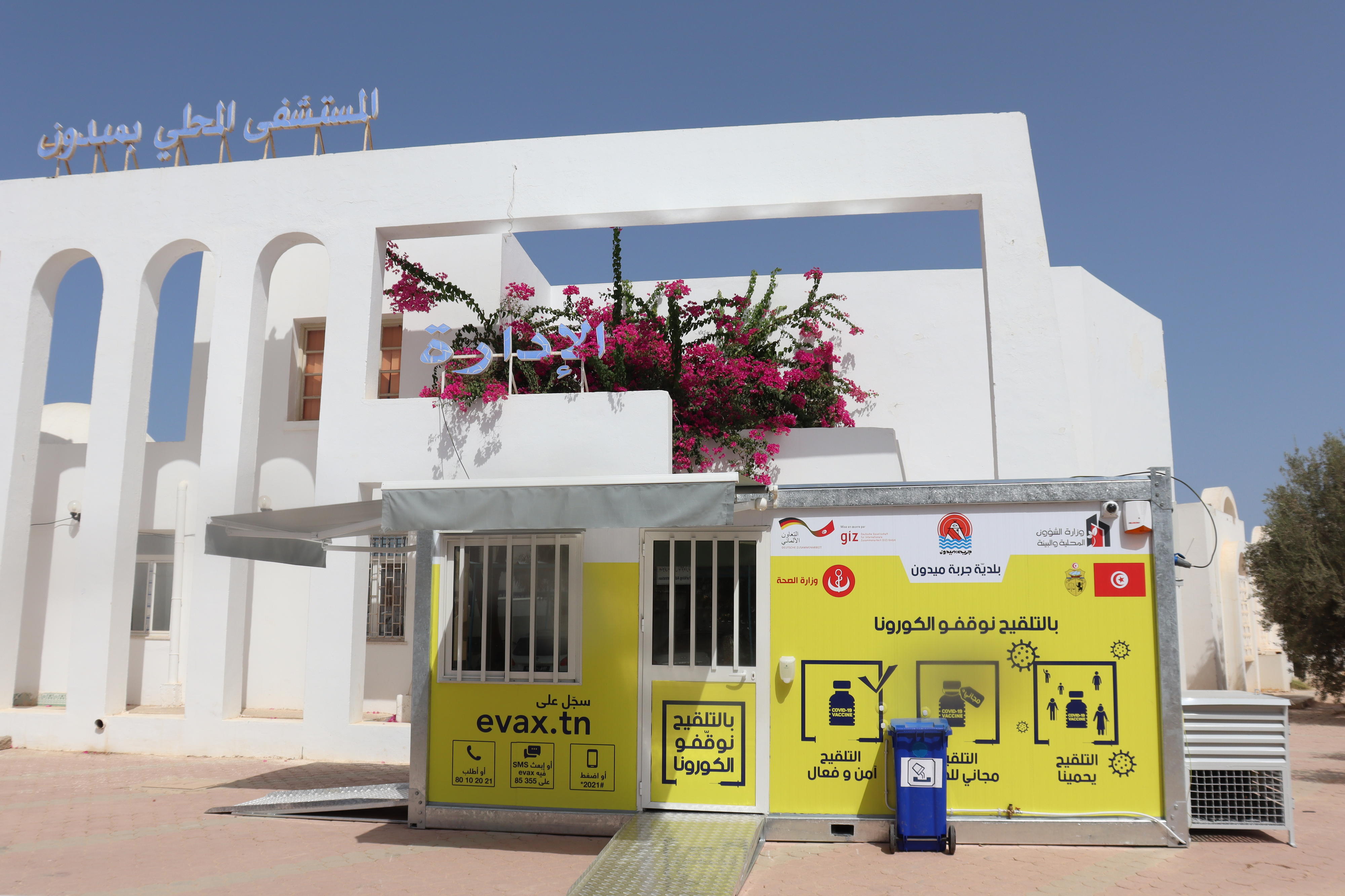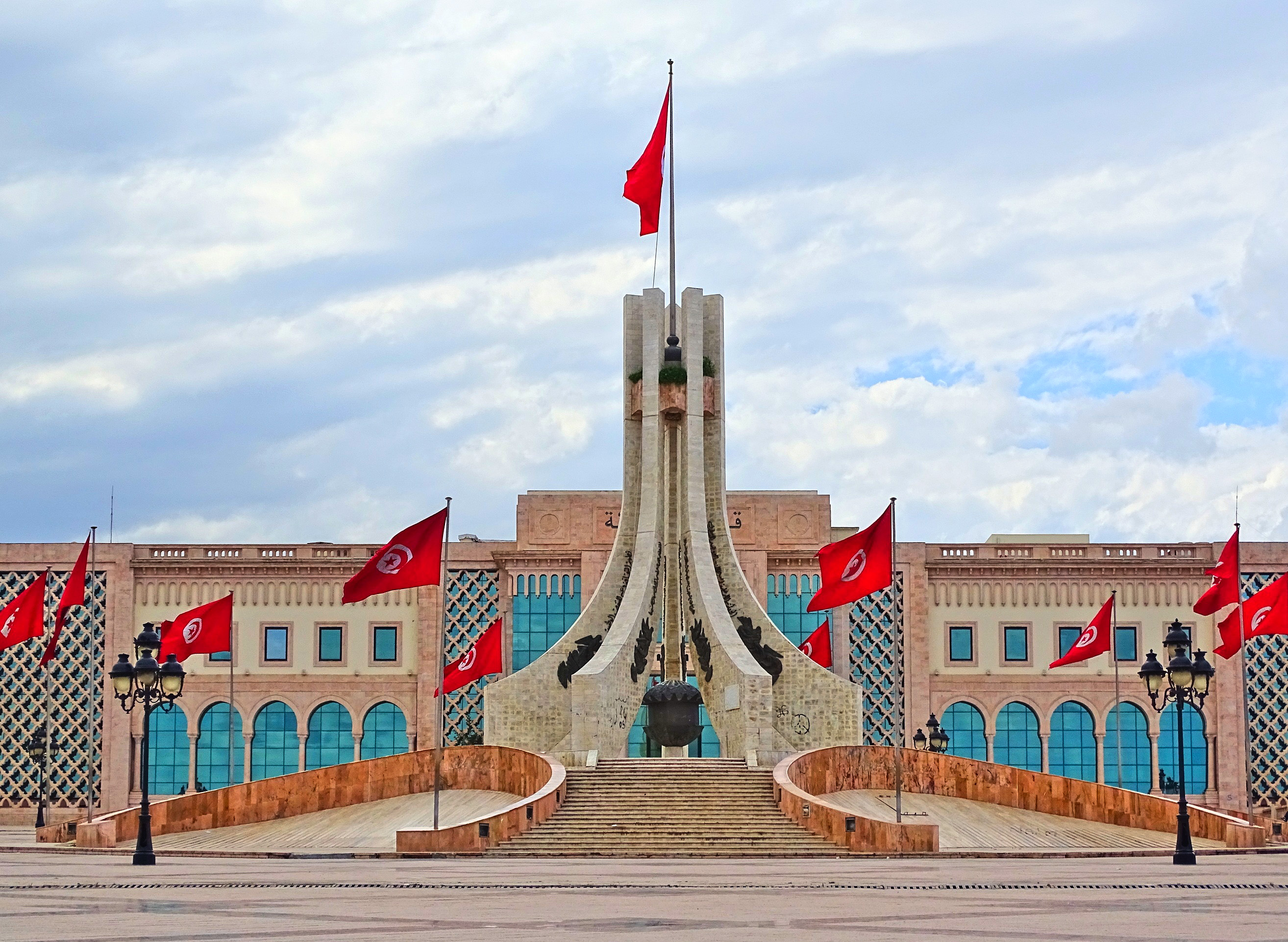Special funds for vaccine logistics Tunisia: 20,000 vaccinations in mobile vaccination containers
Vaccination container in Tunisia
In mid-2020, Tunisia proudly announced that it had defeated the pandemic. And indeed, the small Mediterranean country had done many things right. As early as the end of March 2020, three weeks after the first COVID-19 infection had been detected in the country, strict limits on movement outside the home were imposed. Everything that was not considered essential was closed until mid-May: schools, shops, restaurants and also mosques.
Nevertheless, a year later the COVID-19 figures had risen so dramatically that Tunisia's health system was on the verge of collapse. By mid-2021, the North African country had the third highest official rate of COVID-19 infections in Africa and the most deaths in absolute numbers.
Like almost all countries in the world, Tunisia also relied primarily on vaccinations to overcome the pandemic. But not only the procurement of the vaccines was a challenge. The vaccination itself became a mammoth logistical task. Although Tunisia had already set up the first vaccination centres by mid-July 2021, they could not cope with the rush. In addition, in Tunisia – as in many countries with low or middle incomes – there is a stark gradient between the large cities and rural regions, especially in health care. While, for example, in the capital Tunis there are more than three doctors to take care of every 1,000 inhabitants, mathematically the district town Sidi Bouzid does not even have one doctor.
Better supply for rural areas
To close supply gaps and bring the available vaccines to the people, Germany supported Tunisia and other North African countries with one million euros from the Last-Mile Initiative during the COVID-19 pandemic.
Tunisia already introduced its own solution to provide decentralised health care in 2021, which was supposed to ensure faster and more comprehensive vaccination: six construction containers were converted into mobile vaccination stations and set up in medically underserved cities. In 2022, GIZ was able to set up six more mobile vaccination stations on behalf of the BMZ. This way, within a few months, almost 20,000 people were vaccinated.
Expanded mobile medical services– right up to the door step
With the inauguration of the containers, training for medical staff was also provided to ensure that the vaccinations would be administered efficiently and in compliance with the necessary hygiene measures. The city of El Guettar put its vaccination container on wheels and thus also brought the vaccination service to the neighbouring city of Gafsa.
To further expand the services being offered, solar-powered electric tricycles, so-called e-trikes, were put into service in 2022. They were developed in Tunisia and are produced locally. Vaccinations and educational materials can thus be brought all the way to people’s front doors, reaching even the mobility-impaired inhabitants of the country.
In addition to the COVID-19 vaccinations, flu vaccinations and other medical services are also offered in the containers – for instance preventive medical check-ups for high blood pressure, breast cancer, oesophageal cancer and diabetes treatments. Family planning consultations are also on offer.
As at: 17/10/2023

